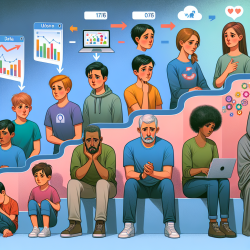The landscape of general practice (GP) in China is evolving rapidly, with significant implications for practitioners worldwide. A recent study titled "First-year medical student attitudes about general practice in China: a comparison between Chinese and international students" offers a unique perspective on how future doctors view this critical field. This research provides valuable insights that can help practitioners enhance their skills and adapt to changing demands.
The Importance of Understanding Student Attitudes
In recent years, the Chinese government has placed a strong emphasis on expanding general practice to meet the healthcare needs of its vast population. However, understanding the attitudes of first-year medical students towards GP is crucial for shaping effective educational and policy interventions. This study sheds light on the differences between Chinese and international students' perceptions, offering a cross-cultural comparison that highlights the challenges and opportunities in promoting GP as a desirable career choice.
Key Findings from the Research
- International Students' Favorable Views: International students showed a greater willingness to work in outpatient settings and provide preventive and palliative care. They also expressed more interest in caring for diverse age groups, such as babies and children.
- Chinese Students' Social Commitment: Chinese students strongly endorsed the social importance of GP, recognizing its necessity in rural areas and its support by the government. However, they were less inclined to view GP as personally rewarding.
- Divergent Career Influences: While both groups valued social commitment and career flexibility, international students placed higher importance on urgent care focus and immediate results of interventions.
Implications for Practitioners
The insights from this study can help practitioners tailor their approach to general practice by understanding what motivates future doctors. Here are some key takeaways:
- Emphasize Personal Rewards: To attract more students to GP, it is essential to highlight the personal rewards and unique characteristics that make it a fulfilling career. This includes showcasing the variety of patient interactions and the impact on community health.
- Cultural Sensitivity: Understanding cultural differences in perceptions of GP can help practitioners develop more effective communication strategies when working with diverse patient populations.
- Focus on Education: Implementing comprehensive GP curricula that emphasize both social importance and personal fulfillment can bridge the gap between societal needs and individual aspirations.
The Path Forward: Encouraging Further Research
This study underscores the need for ongoing research into medical student attitudes towards GP. By exploring these perspectives further, educators and policymakers can develop targeted interventions that align with both national healthcare goals and individual career aspirations.










